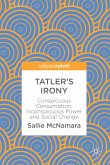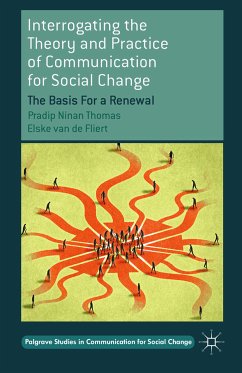Dieser Download kann aus rechtlichen Gründen nur mit Rechnungsadresse in A, B, BG, CY, CZ, D, DK, EW, E, FIN, F, GR, HR, H, IRL, I, LT, L, LR, M, NL, PL, P, R, S, SLO, SK ausgeliefert werden.
"This richly evidenced, tightly argued and deeply self-reflexive book, while national in its initial focus, addresses a question of international importance: what happens to class in societies supposedly organised around market freedoms, but ever more unequal in their operations? Anita Biressi and Heather Nunn's answer, demonstrated in a series of brilliant analyses, is that class gets reshaped as a field of harsh cultural differentiation, hard-wired into a supposedly open and plural popular culture. If you care about the fate of society in neoliberal democracies such as Britain, you really must read this book. A wholly admirable piece of work." - Nick Couldry, Goldsmiths, University of London, UK, and author of Why Voice Matters
"Class and Contemporary British Culture makes for imperative reading. It's a superb book, one I'd highly recommend to anyone remotely interested in (what's horribly wrong with) contemporary Britain." - David Marx Book Reviews
"Thisbook examines a range of issues relating to British culture and class with chapters focusing on social mobility, the underclass, education, celebrity culture, the upper classes, immigration and austerity. The chapter on the 'revolting underclass' is one of the most concise, well written and researched overviews of the 'underclass' available in scholarly literature." - LSE Review
"Class and Contemporary British Culture serves as an important indicator not just of how deeply engrained harmful class perceptions remain, but also of how far Britain needs to go before it can even pretend to call itself tolerant and democratic." - Elliot Murphy, Ceasefire
"An intellectual tour de force boasting of a rare combination of theoretical rigour and page-turning clarity, it sets out to answer key questions about the appearance and reality of class in modern British life." - Michael Pierse, Irish Left Review 1.2, Autumn 2013
'This is a highly accessible book and would be ideal for students or readers with little knowledge of class discourses.' - Stefanie Williamson, The Sociological Review









